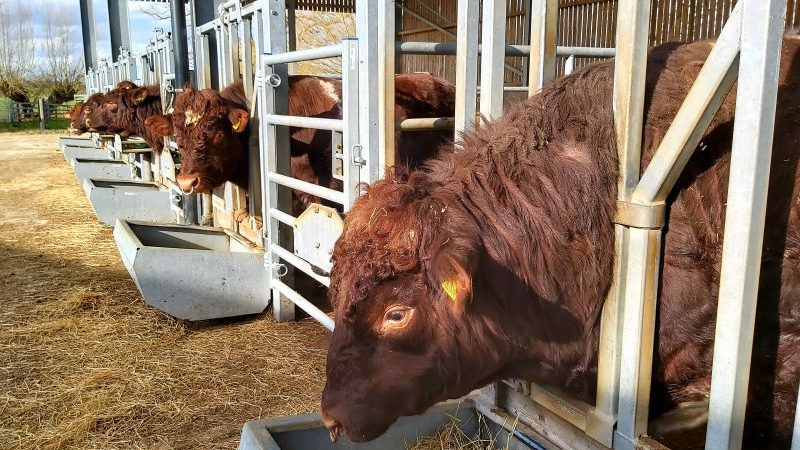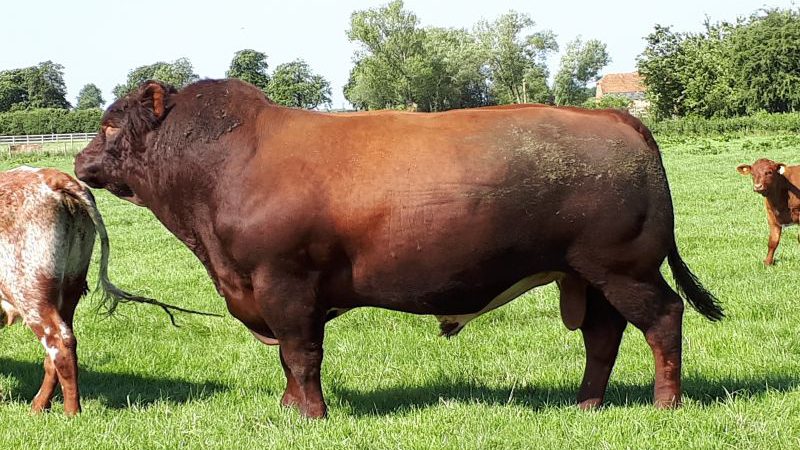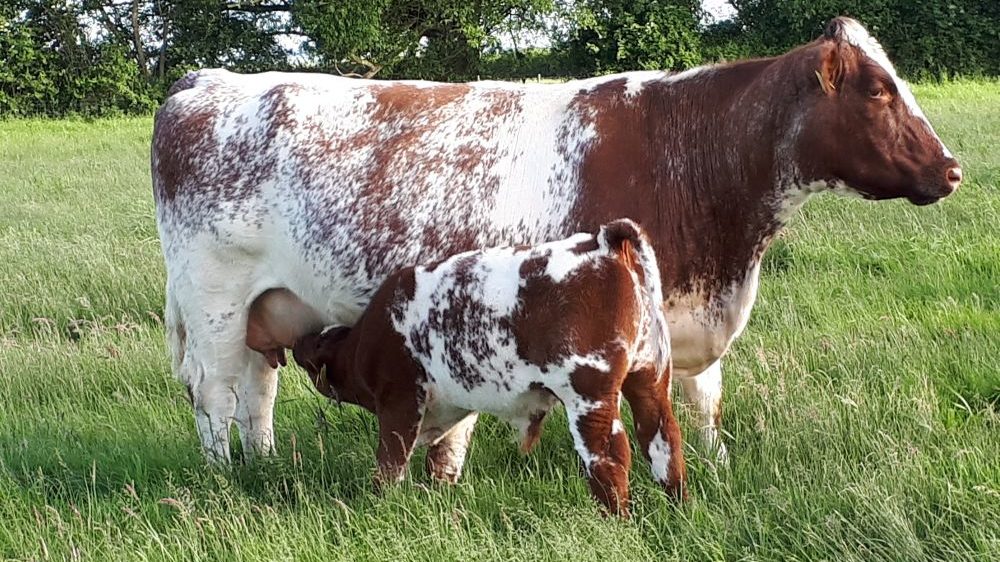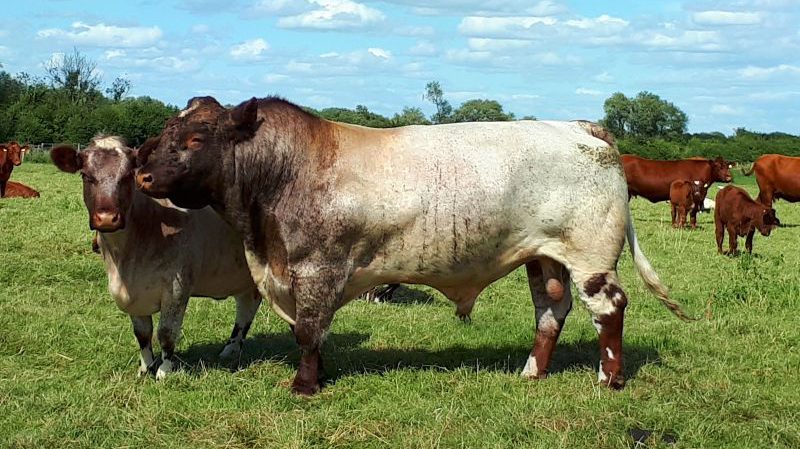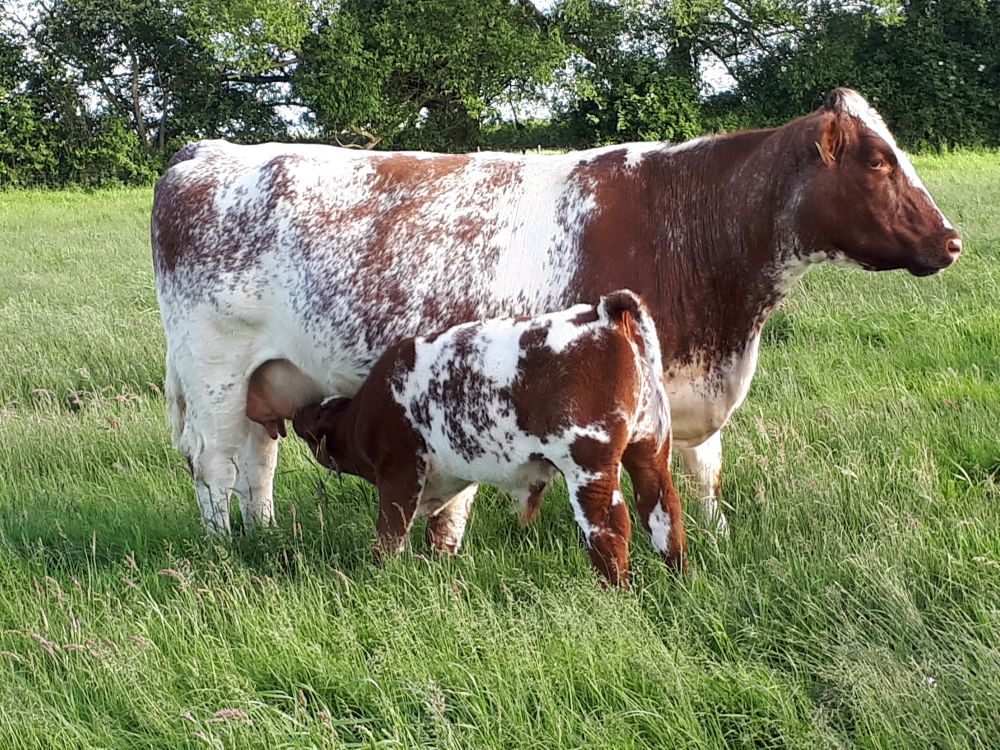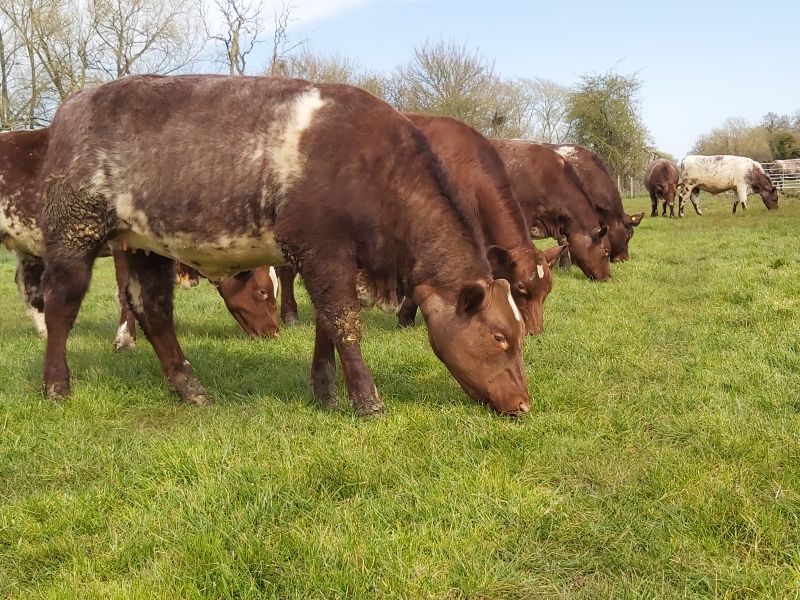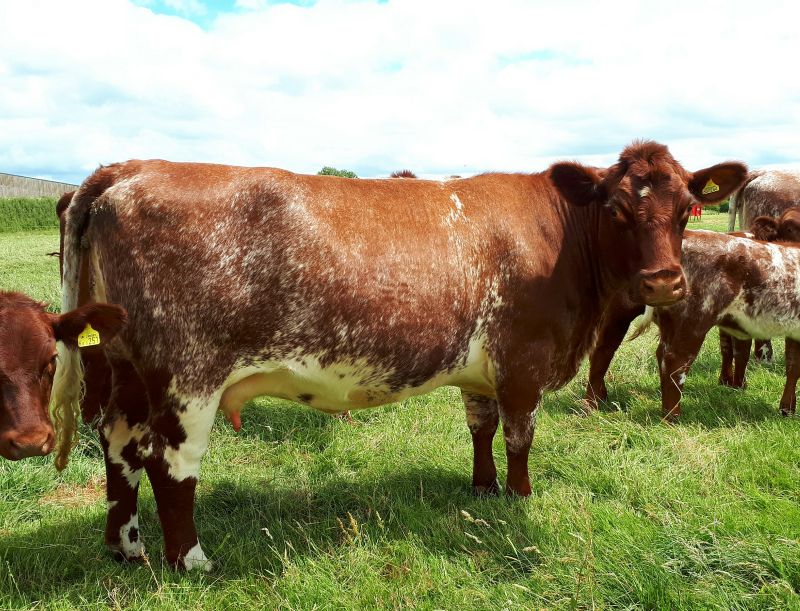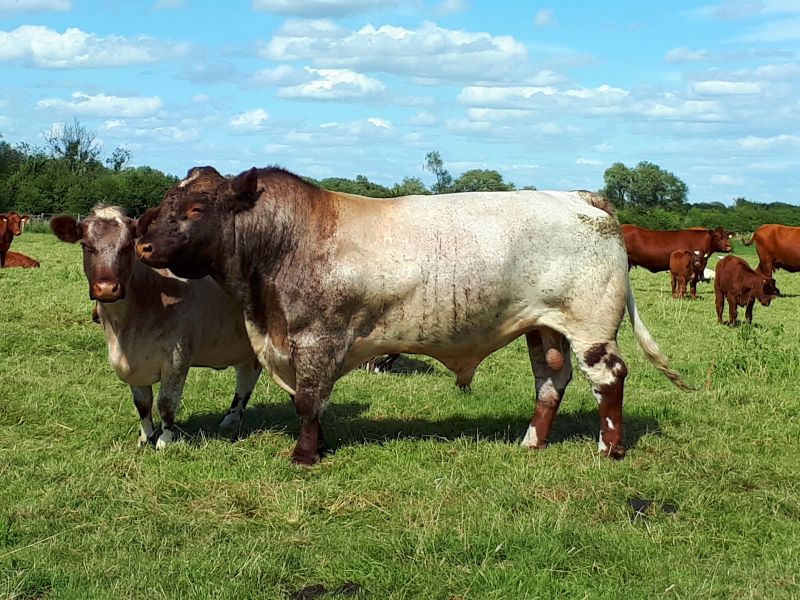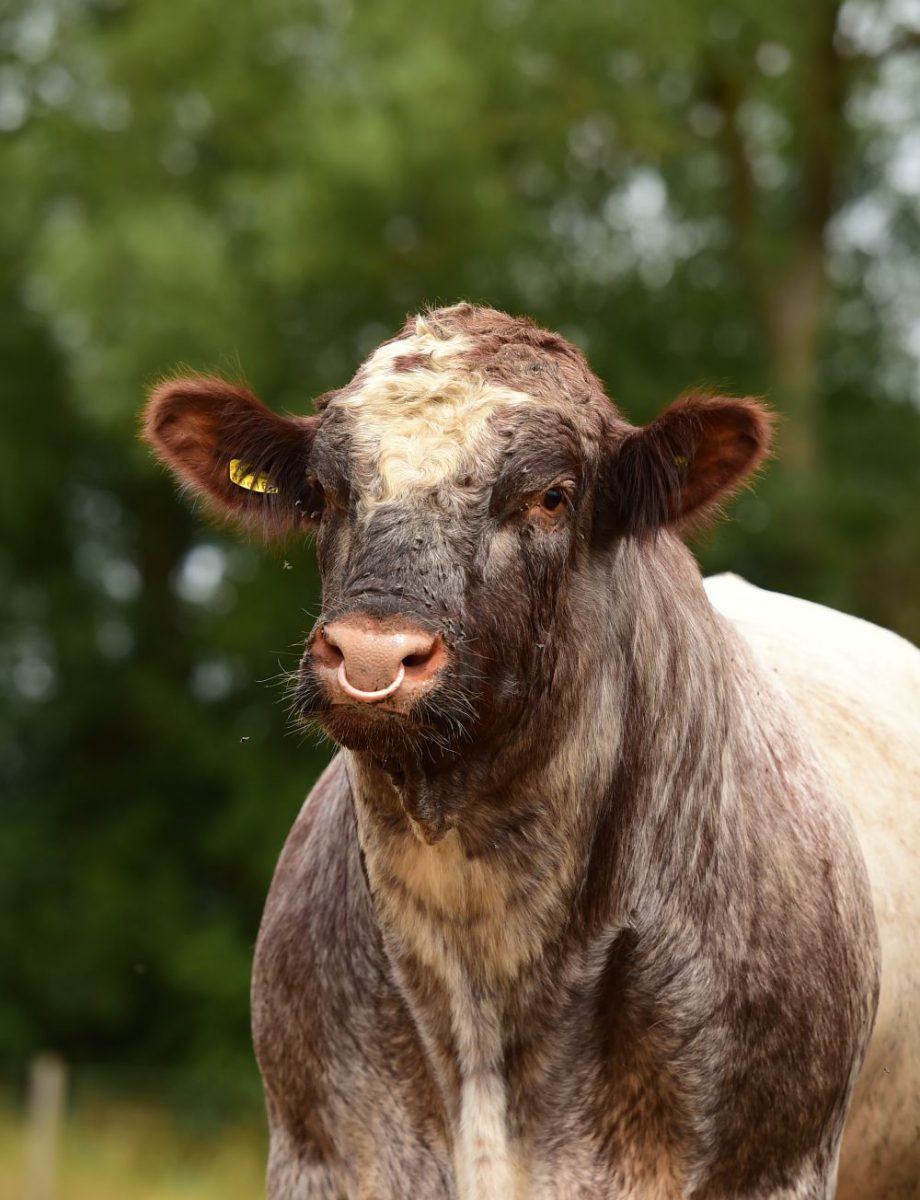
The Stanford Park Breeding Philosophy
Our aim is to breed cattle true to the Beef Shorthorn type – docile, fertile and excellent mothers excelling on a grass based system.
Our principles are driven by what we believe to be the most important factors for any suckler herd: Genetics, Performance Recording, Structure and Herd Health.
A Comprehensive Approach to Breeding Pedigree Beef Shorthorn
Cattle need to be docile, fertile and excellent mothers with an ample milk supply. They should also be hardy and excel at foraging to perform on a grass based system.
Store beasts are the main by-product of our pedigree herd and of great commercial importance. We pride ourselves on the ability of our genetics to produce a very high grade store animal, saleable at any point in its life. To this end, we maintain a good influence on commercial carcass traits within our breeding policy.
Genetics
Here at Stanford Park we use a combination of historic and new genetics. These are pulled from carefully selected, diverse bloodlines in the UK, North America, Canada, Europe and Australia.
Our aim is to provide a selection of breeding cattle to suit commercial and pedigree breeders both in terminal and maternal lines.
As a result of our wide genetic base we can provide a nucleus of females with a totally unrelated bull to anyone wishing to set up or expand their existing herd. You can feel confident that you can return to us in 2-3 years when your bull is coming back on his daughters and select a new stock sire with totally different genetics to move your herd forward.
As a result of our wide genetic base, we can provide a nucleus of females with a totally unrelated bull to anyone wishing to set up or expand their existing herd.
We achieve this by:
- Running 6 stock sires on farm at any one time
- Regularly introducing junior stock bulls to expand a new generation of blood lines
- Annual AI programmes
- A well-researched and proven Embryo Transplant programme
- IVF programmes on high performance donor cows
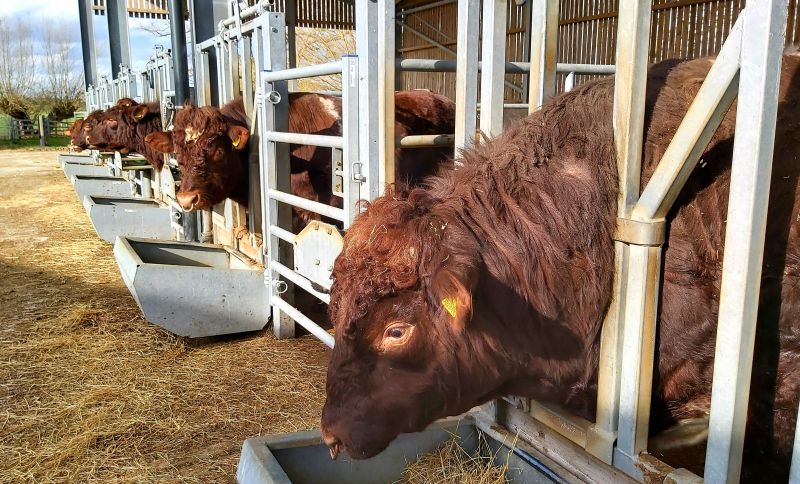
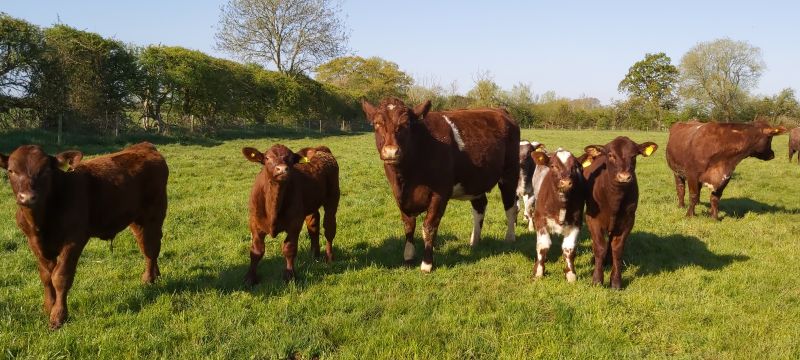
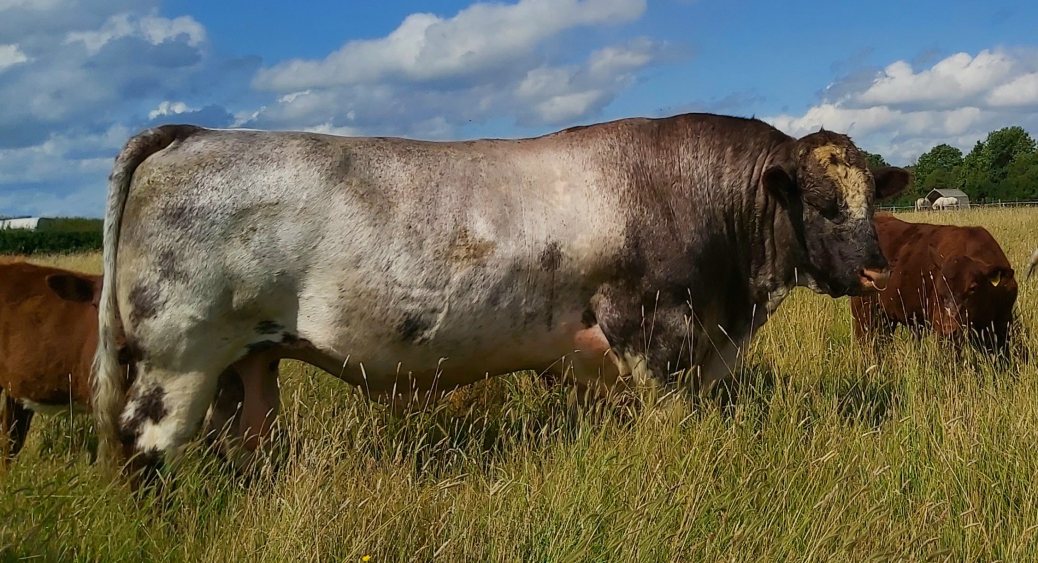
Performance Recording
On a performance level our cattle are regularly weighed and ultrasound scanned for carcass traits. Birth weights, 100, 200, 400 and 600 day weights are all recorded and BLUP’d (Best Linear Unbiased Prediction) to give a national performance index and ranking across the breed in the form of EBVs (Estimated Breeding Values).
We actively breed and select to enhance recorded performance traits.
The cow’s ability to calf and milk as well as gestation and mature size are recorded and processed.
We actively breed and select to enhance these recorded performance traits.
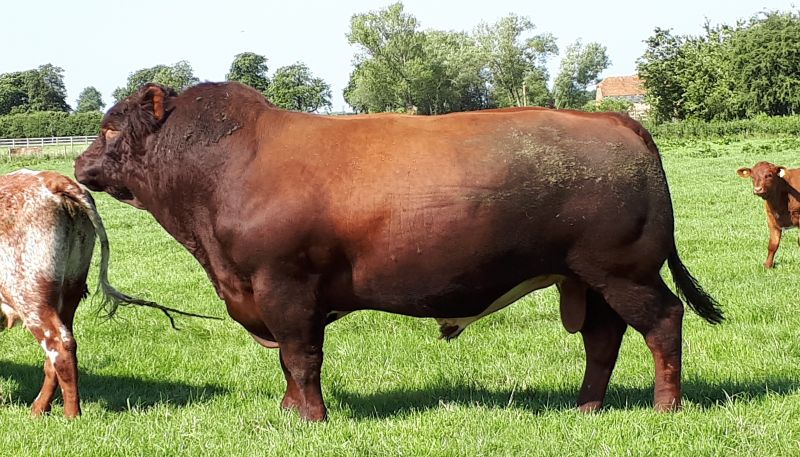
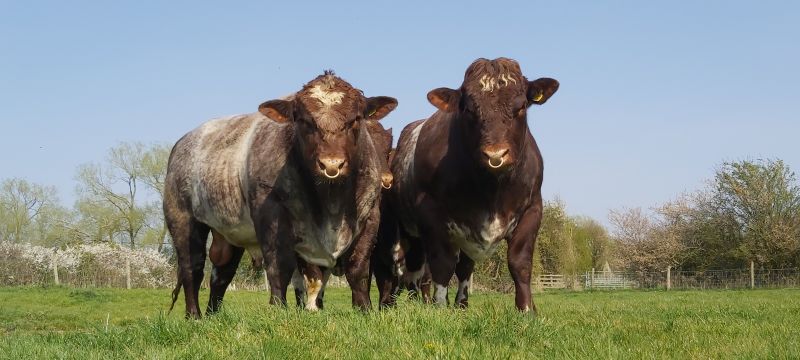
Structure
Type Classification
Our females are Type Classified every year by an independent, experienced beef Classifier from National Bovine Data Collection (Holstein UK). In 2020 Stanford Park herd had the highest number of classified EX and VG cows in the country. Type Classification provides an independent assessment of cows in your herd reviewing the strengths and weaknesses to enhance longevity, health and welfare. It provides an overall classification score for your heifers and cows which can substantially increase their value.
In 2020 Stanford Park herd had the highest number of classified EX and VG cows in the country.
We use classification information to help select and develop the best bloodlines in their own herds as well as when we source animals from other herds. Animals that classify well command a premium at sale time.
Pelvic Scoring
Pelvic measurements are a reliable way to maintain and improve calving ease. We first started scoring our yearling heifers in 2018; Stanford Park heifers regularly pelvic score above 200 sq cm.
We actively breed and select cows that have larger pelvises to avoid calving difficulties. Cows with a narrower pelvis should ideally not be bred – or bred to an easy calving bull.
Stanford Park heifers regularly have a pelvic score of above 200 sq cm
Weighing our bulling heifers also forms a vital component of pre-breeding assessment. We generally target 480 kg for a bulling heifer and will use this rather than age to establish our bulling groups.
Having two calving periods (Jan and April/May) enables us to vary our age at first calving to suit the female concerned. This leads to a spread of calving ages between 22 and 32 months.
Herd Health
Our herd is part of the Premium Cattle Health Scheme, run by SAC forming part of the CHeCS initiative.
We annually:
- Test against the presence of BVD and Johnes.
- Vaccinate against IBR
- Routinely blood test a cow that fails to get in calf.

